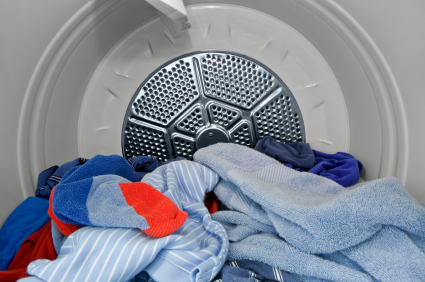
Turning Hot Air into Energy Savings
A team of students from the Bourns College of Engineering at the University of California, Riverside have been selected for a $15,000 grant from the EPA to develop a system could cut electricity bills up to 16 percent by using heat from the sun and attic to operate a clothes dryer.

The students are working to implement the concept at Victory Gardens Moreno Valley, a 30-home zero net energy, urban agriculture focused community planned for redevelopment on 10 acres by Steven Ribeiro, principal of the Independence, Ore.-based Aldeia, LLC.
The students – Jesse S. Lozano, Kenny Chau, Nhat Nguyen, Etinosa J. Agbonwaneten, Ariana E. Villanueva and Stephen R. Opot – won the phase one grant in the built environment category of the EPA People, Prosperity and the Planet (P3) Student Design Competition for Sustainability.
In April, the students will travel to Washington, D.C., to find out if they won the $90,000 phase two grant that would provide funding to commercialize the idea.
Chau, Nguyen and Villanueva received bachelor's degrees this week and Lozano earned a Ph.D. Agbonwaneten and Opot are still working on their bachelor's degrees and will continue working on the project with members of the UC Riverside Engineers Without Borders chapter.
The students advisors are Kawai Tam, a lecturer at the Bourns College of Engineering, and Mark Matsumoto, a professor of environmental and chemical engineering.
Students from the Engineers Without Borders chapter originally contacted Ribeiro about his world's greenest building project in Oregon. After that, in October, Ribeiro and associates toured UC Riverside's facilities and began discussions on potential collaborations for integrating senior design projects at Victory Gardens.
The system developed by the students is one of those projects. It works this way:
Using an off-the-shelf solar-powered attic fan from Lowe's, a sponsor of the project, the system will harness solar thermal heat from a rooftop solar heat collector and/or heated air from the attic. The heated air will be diverted through a newly constructed closet, which will be concealed in what appears to be a fireplace and chimney when viewed from the outside. The closet would be 30 inches deep and 7 feet wide and high.
"We figured we could take advantage of what is normally a problem – hot air in the attic – and turn it into an asset," Ribeiro said.
The developer has asked that in this case the closet be designed to resemble a fireplace and chimney, but the closet also could be configured into an existing two-car garage, the students said.
The heated air can also be directed through air ducts for space heating applications in the house as needed to reduce electric and natural gas heating costs during cooler months.
The students' system saves two important things: money and energy.
Energy consumption from clothes dryers make up about 16 percent of energy demands in the residential sector.
The $1,500 upfront cost of the solar thermal closet exceeds the $600 average upfront cost of a dryer, but the closet doesn't require the maintenance a dryer needs and its use doesn't drive up an electricity bill. Because of that, the students estimate a homeowner using the closet and not a clothes dryer would save nearly $6,500 in a 20-year period.
In addition, the heated humid air from the solar thermal closet can be used as a substitute for a space heater and humidifier. Taking this into account, the students calculate a homeowner could save another nearly $8,700 over 20 years.
Few alternatives to clothes dryers exist. The most common is line drying clothing. But, it has limitations. Optimal weather conditions – ample sun, limited rain and relatively low humidity – are needed. Also, residents governed by a homeowner's association are typically not allowed to use a clothes drying line.
Victory Gardens Moreno Valley will build on other green, energy-efficient and sustainable projects being developed in Oregon and Idaho by Aldeia, LLC.
The Ribeiro family has owned the homes in Moreno Valley since 1979. They were originally constructed in the 1950s as off-base family housing for people stationed at the former March Air Force Base. The 900-square-foot, three bedroom homes will undergo "extreme green remodels" and rent for between $895 and $1,195 per month, Ribeiro said.
Victory Gardens will provide training and assistance to help residents lower their food costs and earn money by raising their own healthy and nutrient dense vegetables, fruit and fish using aquaponics, a sustainable food production system that will combine raising Tilapia fish with rapid cultivation of plants in a symbiotic environment. The system uses no soil and consumes 90 percent less water than a standard agricultural operation.
Excess food production will be sold at a planned onsite farmers market for extra income, be used in community potlucks and donated to the local food bank.
One unit has been selected to be the model home for the community. Taking advantage of the natural turnover in the units, Ribeiro is looking for people interested in moving in and learning to live a natural, healthy and low cost lifestyle in an authentic, neighborly community.
Several of the housing units will be set aside as shared housing and rooms will rent for just $375 per month for singles with green thumbs looking to live and work in an urban farm.